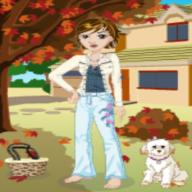好似fish咁
仲有冇?多數咩唔洗加S??
愈多愈好...唔該~
有咩字就算多過一個都唔洗加S??
2006-12-01 11:22 pm
回答 (10)
2006-12-01 11:39 pm
✔ 最佳答案
單數........複數child.....children細路
man.....men男人
ox.......oxen公牛
tooth.......teeth牙
woman.....women女人
foot....feet腳
mouse.....mice老鼠
goose.....geese鵝
bison.......bison野牛
deer......deer鹿
sheep......sheep綿羊
fish........fish魚
reindeer.......reindeer馴鹿
以下呢D只有複數沒有單數
pyjamas睡衣
scissors
shorts短褲
trousers長褲
sandals涼鞋
sneakers運動鞋
slippers拖鞋
goggles護目鏡
2006-12-02 12:13 am
原則上很多uncountable nouns (數不到的物件)都不用加S,上面己有很多例字,但若一刀切去說,也有犯錯的機會,例如:
water,一般來說不用加S,但要表達不同的水域,那water便可加S。
trousers----前面的量詞通常是 a trousers,指a pair of trousers,但用some也無不可,表示很多褲子。
因此fish 也可以是fishes,代表不同種類的魚。看你要表達什么。同時要看英話的傳統用法,很難一概而論。讀外國人所寫的書多留意會有幫助。
water,一般來說不用加S,但要表達不同的水域,那water便可加S。
trousers----前面的量詞通常是 a trousers,指a pair of trousers,但用some也無不可,表示很多褲子。
因此fish 也可以是fishes,代表不同種類的魚。看你要表達什么。同時要看英話的傳統用法,很難一概而論。讀外國人所寫的書多留意會有幫助。
2006-12-02 12:00 am
Do you mean words would have the same spelling of their single and plural forms? Actually, there are quite a lot.
Yes, (fish) can be single and plural. But you can use (fishes) to describe many different kinds of fish.
(Person) is a single form while (people) is plural in formal English. But (persons) is commonly used in many western countries. Again, you can use (peoples) to describe many different races of people.
Yes, (fish) can be single and plural. But you can use (fishes) to describe many different kinds of fish.
(Person) is a single form while (people) is plural in formal English. But (persons) is commonly used in many western countries. Again, you can use (peoples) to describe many different races of people.
2006-12-01 11:41 pm
I
deer
fish (and many individual fish names: cod, mackerel, trout, etc.)
moose
sheep
Irregular Germanic plurals
ox oxen (also oxes in metaphorical sense)
cow kine (archaic/regional)
eye eyen (rare, found in some regional dialects)
shoe shoon (also rare/obsolete)
child children (actually earlier plural "cildra" plus -en suffix, forming a double plural)
The plural is sometimes formed by simply changing the vowel sound of the singular, in a process called umlaut (these are sometimes called mutated plurals):
foot feet
goose geese
louse lice
man men
mouse mice
tooth teeth
woman women
Irregular plurals from Latin and Greek
Correctly formed Latin plurals are the most acceptable, and indeed are often required, in academic and scientific contexts. In common usage, plurals with -s are sometimes preferred.
* Final a becomes -ae (also -æ), or just adds -s:
alumna alumnae
formula formulae/formulas
* Final ex or ix becomes -ices (pronounced [ɪˌsiːz] or [əˌsiz]), or just adds -es:
index indices /ˈɪndɪˌsiːz/ -or- indexes
matrix matrices /ˈmeɪtɹɪˌsiːz/
vertex vertices /ˈvɝtɪˌsiːz/
Some people treat process as if it belonged to this class, pronouncing processes /ˈpɹɑsɪˌsiːz/ instead of standard /ˈpɹɑsɛsɪz/
* Final is becomes es (pronounced [ˌiːz]:
axis axes /ˈækˌsiːz/
crisis crises /ˈkɹaɪˌsiːz/
testis testes /ˈtɛsˌtiːz/
Note that axes, the plural of axis, is pronounced differently from axes (/ˈæksɪz/), the plural of axe.
* Final ies remains unchanged:
series series
species species
* Final on becomes -a:
automaton automata
criterion criteria
phenomenon phenomena (more below)
polyhedron polyhedra
* Final um becomes -a, or just adds -s:
addendum addenda
datum data (now often treated as a singular mass noun in informal usage, but in publishing usually still plural)
forum fora/forums
medium media (in communications and computers; now often treated as a singular mass noun)/
mediums (spiritualists)
memorandum memoranda/memorandums
* Final us becomes -i (second declension) or -era or -ora (third declension), or just adds -es (especially in fourth declension, where it would otherwise be the same as the singular):
alumnus alumni
corpus corpora
prospectus prospectuses
radius radii
viscus viscera
* Final as in one case of a noun of Greek origin changes to -antes:
Atlas Atlantes (statues of the hero); but
atlas atlases (map collections)
* Final ma in nouns of Greek origin add -ta:
stigma stigmata
stoma stomata
zeugma zeugmata
* Though some take -s more commonly:
schema schemata/schemas
dogma dogmata/dogmas
lemma lemmata/lemmas
* Final -us in nouns of Latin origin properly change -us to -i. Modern users tend to add -es instead; many older users insist on the -i plural.[2]
cactus cacti/cactuses (in Arizona many people avoid either choice with cactus as both singular and plural)
hippopotamus hippopotami/hippopotamuses
octopus octopi/octopuses (note: some insist octopodes is correct, however it has never been the true plural of the word)
platypus platypi/platypuses
rhinoceros rhinocerosi/rhinoceruses
uterus uteri/uteres
deer
fish (and many individual fish names: cod, mackerel, trout, etc.)
moose
sheep
Irregular Germanic plurals
ox oxen (also oxes in metaphorical sense)
cow kine (archaic/regional)
eye eyen (rare, found in some regional dialects)
shoe shoon (also rare/obsolete)
child children (actually earlier plural "cildra" plus -en suffix, forming a double plural)
The plural is sometimes formed by simply changing the vowel sound of the singular, in a process called umlaut (these are sometimes called mutated plurals):
foot feet
goose geese
louse lice
man men
mouse mice
tooth teeth
woman women
Irregular plurals from Latin and Greek
Correctly formed Latin plurals are the most acceptable, and indeed are often required, in academic and scientific contexts. In common usage, plurals with -s are sometimes preferred.
* Final a becomes -ae (also -æ), or just adds -s:
alumna alumnae
formula formulae/formulas
* Final ex or ix becomes -ices (pronounced [ɪˌsiːz] or [əˌsiz]), or just adds -es:
index indices /ˈɪndɪˌsiːz/ -or- indexes
matrix matrices /ˈmeɪtɹɪˌsiːz/
vertex vertices /ˈvɝtɪˌsiːz/
Some people treat process as if it belonged to this class, pronouncing processes /ˈpɹɑsɪˌsiːz/ instead of standard /ˈpɹɑsɛsɪz/
* Final is becomes es (pronounced [ˌiːz]:
axis axes /ˈækˌsiːz/
crisis crises /ˈkɹaɪˌsiːz/
testis testes /ˈtɛsˌtiːz/
Note that axes, the plural of axis, is pronounced differently from axes (/ˈæksɪz/), the plural of axe.
* Final ies remains unchanged:
series series
species species
* Final on becomes -a:
automaton automata
criterion criteria
phenomenon phenomena (more below)
polyhedron polyhedra
* Final um becomes -a, or just adds -s:
addendum addenda
datum data (now often treated as a singular mass noun in informal usage, but in publishing usually still plural)
forum fora/forums
medium media (in communications and computers; now often treated as a singular mass noun)/
mediums (spiritualists)
memorandum memoranda/memorandums
* Final us becomes -i (second declension) or -era or -ora (third declension), or just adds -es (especially in fourth declension, where it would otherwise be the same as the singular):
alumnus alumni
corpus corpora
prospectus prospectuses
radius radii
viscus viscera
* Final as in one case of a noun of Greek origin changes to -antes:
Atlas Atlantes (statues of the hero); but
atlas atlases (map collections)
* Final ma in nouns of Greek origin add -ta:
stigma stigmata
stoma stomata
zeugma zeugmata
* Though some take -s more commonly:
schema schemata/schemas
dogma dogmata/dogmas
lemma lemmata/lemmas
* Final -us in nouns of Latin origin properly change -us to -i. Modern users tend to add -es instead; many older users insist on the -i plural.[2]
cactus cacti/cactuses (in Arizona many people avoid either choice with cactus as both singular and plural)
hippopotamus hippopotami/hippopotamuses
octopus octopi/octopuses (note: some insist octopodes is correct, however it has never been the true plural of the word)
platypus platypi/platypuses
rhinoceros rhinocerosi/rhinoceruses
uterus uteri/uteres
2006-12-01 11:33 pm
person change to people
2006-12-01 11:29 pm
rice(飯)
就算有好多粒飯都唔洗加s,因為大多,數唔盡。
就算有好多粒飯都唔洗加s,因為大多,數唔盡。
參考: 老師講過
2006-12-01 11:28 pm
man-men
woman-women
policeman-policemen
policewoman-policewomen
2006-12-01 15:31:01 補充:
a little watera little porka little juice
2006-12-01 15:31:37 補充:
a little ice cream
2006-12-01 15:32:29 補充:
a little ice cream Xice cream
2006-12-01 15:38:58 補充:
jellyjellyfish(es)
woman-women
policeman-policemen
policewoman-policewomen
2006-12-01 15:31:01 補充:
a little watera little porka little juice
2006-12-01 15:31:37 補充:
a little ice cream
2006-12-01 15:32:29 補充:
a little ice cream Xice cream
2006-12-01 15:38:58 補充:
jellyjellyfish(es)
2006-12-01 11:27 pm
children
2006-12-01 11:27 pm
Uncountable -- like water, infromation,
2006-12-01 11:25 pm
Person
多過一個係people
多過一個係people
收錄日期: 2021-04-12 22:01:40
原文連結 [永久失效]:
https://hk.answers.yahoo.com/question/index?qid=20061201000051KK01783




